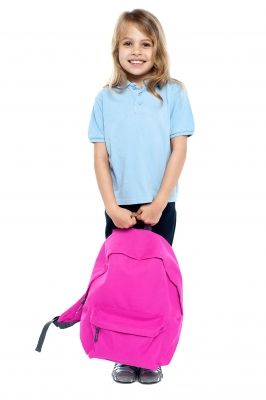ADHD
ADHD in Tweens Part II: Tools to Tackle Inattentive Type
How to help your inattentive tween get focused and organized.
Posted August 23, 2013
Once a professional has validated your concerns associated with your tween’s lack of organization and/or ability to remain focused, it is time to take action. Perhaps on the contrary, you were relieved to hear that although your tween presents as disorganized her symptoms do not rise to the level consistent with a diagnosis of ADHD inattentive type. Regardless of whether your disorganized tween meets full criteria or not, you may still be baffled by how to help her.
Each child is of course an individual with a whole host of strengths and weaknesses. There are however, some general tips you can try to help create the structure and support your disorganized tween requires to ensure success. The following is a quick list of tried and true tips to tackle the most difficult issues typically presented by a tween who lacks organization and focus.
- Set up a structured system of organization for school materials. Color-coding by subject is often helpful. All science materials for example should be put in the blue notebook, loose papers in the blue folder, etc.
- Encourage your tween to create a nightly homework schedule with estimated times for completion of each assignment. Include blocks of time for longer-term assignments. This will prevent your tween from trying to tackle a large assignment the night before it is due.
- All assignments should be written down in a daily planner. Your tween should find a friend in each class with whom he can confer to ensure that he has written it all down correctly. In addition, this friend can serve as a good source with whom to check classroom notes. These days many schools provide online access to homework assignments. Make sure you and your tween check online every night.
- If your tween lacks focus make sure she schedules her homework in short blocks of time, even if she has to skip around to get it all done. It will take time for her to determine the best individual approach. Your job is to make sure she completes her assignments. Don’t just assume she has completed everything. You are best served actually checking her work. How she chooses to complete her assignments should be left up to her.
- Tackle one task at a time. If his room is a mess but he has loads of homework to complete, work with him to prioritize what needs to get completed. Perhaps he is best served cleaning his room a little at a time for example, schedule in 15 minutes per night when he is to focus on cleaning up one area in his room. In time he will get it all organized.
- Visual cues are often the best reminders. Encourage your tween to keep her life labeled and organized. If your tween has a tendency to leave her sports equipment all over the house for example. A good way to avoid the mad frenzy to find items five minutes before she is due at practice is to create a labeled bin in which she is to deposit her sports equipment. It will take time for her to get in to the routine of putting the items there but in time it should pay off.
- Create a system of reinforcement. When your son was younger you may have realized that a structured reward system was helpful in motivating your child to complete chores. A structured incentive program can also help your tween remain organized and focused. Sit down with your tween and create such a system together. His involvement will empower him to follow the plan.
- Writing it down makes it real. Although your tween has every intention of remembering the list of things she is required to do each day, a lack of focus can lead to forgetfulness. Two important purposes are served when things are written down. The actual act of writing will help reinforce her memory. In addition the content of what has been written will serve as an important visual cue. Keeping an ample supply of post-it-notes is a great way to provide quick visual cues for your less than focused tween. They can be stuck anywhere and quickly removed when needed.
Getting organized takes time and effort. As a parent, you provide the support and guidance your tween requires to overcome an affinity toward disorganization and distraction. It is important to remember that ADHD inattentive type can be challenging and overwhelming for both you and your tween. Frustration, annoyance, and even anger will not overcome the symptoms associated with the diagnosis. Patience, understanding and encouragement however, will empower your tween to help herself. While the challenges faced by a disorganized tween may be difficult they can be successfully overcome when you take the time and effort to work together.
Refer to Part I of this articles series to learn about diagnosing ADHD in your tween.

An organized and focused tween is a happy tween.


